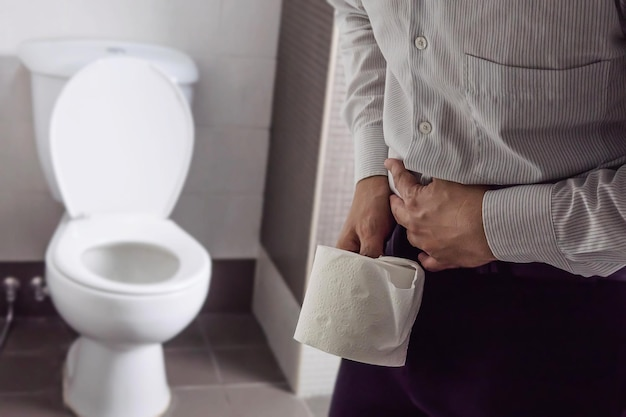Understanding the factors behind constipation can empower you to make healthy choices. When we discuss constipation causes, it’s all about knowing the triggers and finding the right fixes. Let’s dive into what leads to this uncomfortable situation and see how we can tackle it effectively.
Common Dietary Triggers of Constipation
Diet plays a huge role in keeping our bowels moving. Some foods can slow things down. Let’s explore some constipation triggers in our diet and what we can do to fix them.
- Low fiber intake: Fiber is crucial for keeping things regular. If your diet lacks fiber-rich foods like fruits, veggies, and whole grains, you might find yourself backed up.
- Insufficient fruit and vegetable consumption: These are not only tasty but very important for providing the fiber and nutrients needed for good digestion. Missing out on these can slow down your digestive system.
- Inadequate hydration: Drinking too little water can make stools hard and difficult to pass. Keeping hydrated ensures things move smoothly.
Whether it’s one of these or a combination, these constipation causes are common in many diets. Luckily, they are fixable with a few simple changes:
- Increase fiber intake slowly: Start adding more beans, lentils, and whole grains to your meals.
- Drink plenty of water: Aim for at least 8 glasses a day.
- Cut down on processed foods: These often lack fiber and can lead to constipation.
By making these small changes, you can keep your digestive system in check and avoid common constipation treatment options.
Medical Conditions and Hormonal Influences
Some medical conditions and hormonal changes can increase your risk of constipation. Let’s look at how these factors come into play as potential constipation causes.
Certain medical conditions can lead to constipation: – Hypothyroidism slows body functions, including digestion. – Diabetes can affect nerve damage, impacting bowel movements. – Pregnancy brings hormonal changes, which can often lead to slower digestion.
If you’re experiencing persistent constipation, it’s a good idea to see a doctor. Constipation treatment options might be more involved when medical conditions are the cause. Here are some suggestions:
- Consult with a healthcare provider to understand your symptoms better.
- Discuss treatment plans that fit your medical history.
- Regular check-ups may be needed to monitor and manage the condition.
Medical constipation causes need careful attention. With the right guidance, you can work towards better digestive health.
Rethinking Laxatives and Exploring Natural Management
Many people turn to laxatives for quick relief. But relying on them too often can pose risks and lead to constipation complications. Understanding why can help encourage healthier habits.
Over-relying on laxatives can lead to: – Dependency, where the bowel becomes lazy. – Disruption in natural bowel functions. – Trouble with nutrient absorption.
Instead of laxatives, try natural methods of constipation management:
- Regular exercise: Helps keep the body active and promotes bowel movement.
- Healthier eating habits: Including more fiber and drinking enough water.
- Establishing a routine: Try to heed nature’s call at the same time each day.
For children, constipation treatment options must be gentle and supervised by a pediatrician. It’s important to address any dietary gaps or stress factors.
Switching from laxatives to more natural constipation treatment options doesn’t have to be hard. It’s about forming good habits and listening to your body’s needs.
The Connection Between Mental Well-being and Bowel Health
Did you know that stress and mental health can affect your digestive system? Many forget that our mental state can be one of the constipation triggers.
Stress can mess with your digestion, leading to: – Changes in bowel patterns – Increased likelihood of constipation
Addressing these constipation causes involves a focus on mental well-being:
- Stress management: Techniques like meditation, breathing exercises, and relaxation can ease feelings of stress.
- Mindfulness practices: Understanding your body’s signals and reacting calmly often helps maintain a regular routine.
- Balance life activities: Ensure work, play, and rest are part of your daily routine.
By incorporating these tips, you can improve your mental health and, consequently, your gut health.
In conclusion, stepping into the world of constipation management starts with uncovering the constipation causes affecting you. Whether it’s diet, lifestyle, or mental health, there are ways to address each. Better understanding and tackling these constipation triggers bring not only relief but a healthier digestive system. Remember, long-term habits are the key to preventing future constipation complications.
